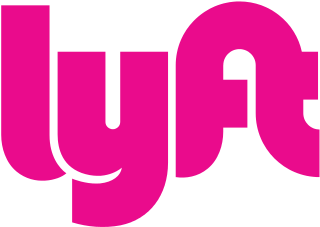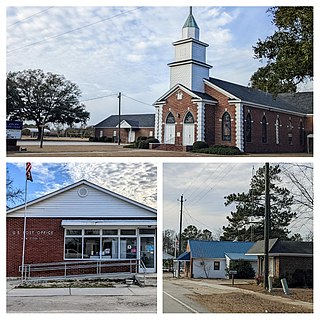Related Research Articles

Uber Technologies, Inc. (Uber), based in San Francisco, provides mobility as a service/ride-hailing, food delivery/package delivery/couriers via Uber Eats and Postmates, and freight transport. Uber sets fares, which vary using a dynamic pricing model based on local supply and demand at the time of the booking and are quoted to the customer in advance, and receives a commission from each booking. It has operations in approximately 72 countries and 10,500 cities and, with 131 million monthly active users worldwide, it generates an average of 23 million trips per day.

A QR code is a type of matrix barcode invented in 1994 by Japanese company Denso Wave. A barcode is a machine-readable optical label that can contain information about the item to which it is attached. In practice, QR codes often contain data for a locator, identifier, or tracker that points to a website or application. QR codes use four standardized encoding modes to store data efficiently; extensions may also be used.

Slugging, also known as casual carpooling, is the practice of forming ad hoc, informal carpools for purposes of commuting, essentially a variation of ride-share commuting and hitchhiking. A driver picks up these non-paying passengers at key locations, as having these additional passengers means that the driver can qualify to use an HOV lane or enjoy toll reduction. While the practice is most common and most publicized in the congested Washington, D.C. metropolitan area, slugging also occurs in San Francisco, Houston, and other cities.
Gun laws in the United States regulate the sale, possession, and use of firearms and ammunition. State laws vary considerably, and are independent of existing federal firearms laws, although they are sometimes broader or more limited in scope than the federal laws.

Taxis of Singapore come in two main varieties. Traditional taxi companies offer flag down and call bookings and their drivers are hired employees of the company. Ridesharing companies allow bookings through a smartphone, allowing ease for passengers, these are mostly known as private hire vehicles (PHV). Their apps also allow the flexibility to work and pick up passengers with their own vehicle, be it owned or rented, provided the various requirements are met depending on the company.

Lyft, Inc. offers mobility as a service, ride-hailing, vehicles for hire, motorized scooters, a bicycle-sharing system, rental cars, and food delivery in the United States and select cities in Canada. Lyft sets fares, which vary using a dynamic pricing model based on local supply and demand at the time of the booking and are quoted to the customer in advance, and receives a commission from each booking. Lyft is the second-largest ridesharing company in the United States after Uber.

Waymo LLC, formerly known as the Google Self-Driving Car Project, is an American autonomous driving technology company headquartered in Mountain View, California. It is a subsidiary of Alphabet Inc., the parent company of Google.

A ridesharing company is a company that, via websites and mobile apps, matches passengers with drivers of vehicles for hire that, unlike taxicabs, cannot legally be hailed from the street.
Many communities, governments, and organizations have established rules and regulations that specifically govern ridesharing companies. In some jurisdictions, for-profit ridesharing operations are completely illegal. Regulations can include requirements for driver background checks, fares, the number of drivers, and licensing.

Vugo is a rideshare advertising company that markets ads on billboards on top of vehicles for hire. Headquartered in Minneapolis, Minnesota, the company is the first to develop in-car advertising for the rideshare marketplace.
Rideshare advertising is a form of digital, out-of-home advertising that uses in-car advertisements in ridesharing vehicles.

Didi Chuxing Technology Co., formerly named Didi Dache (嘀嘀打车) and Didi Kuaidi, is a Chinese vehicle for hire company headquartered in Beijing with over 550 million users and tens of millions of drivers. The company provides app-based transportation services, including taxi hailing, private car hailing, social ride-sharing, and bike sharing; on-demand delivery services; and automobile services, including sales, leasing, financing, maintenance, fleet operation, electric vehicle charging, and co-development of vehicles with automakers. The company is a subsidiary of Xiaoju Kuaizhi Inc.

Yandex.Taxi is an international company owned by Russian IT-giant Yandex and that operates taxi aggregation and food tech businesses across Russia, CIS, Eastern Europe, Africa and the Middle East. The company is among the world's leading developers of self-driving technology.

New Zion is an unincorporated community in Clarendon County, South Carolina, United States. The community is located along Puddin Swamp, 3.3 miles (5.3 km) south of Turbeville. New Zion has a post office with ZIP code 29111, which opened on March 25, 1852.
A series of general strikes was coordinated on March 25, 2019 by Lyft and Uber drivers in Los Angeles, San Diego and San Francisco, California, United States led by rideshare advocate group Rideshare Drivers United. The strikes aimed to protest low wages, long hours, working conditions, and lack of benefits. The event was planned following Lyft's initial public offering. A second strike took place on May 8, 2019 in anticipation of Uber's initial public offering. The strike in response to Uber's IPO took place in 25 major cities across the United States, and were also joined by drivers in other locations worldwide where Uber operates.

The murder of Samantha Josephson, a student at University of South Carolina, in Columbia, South Carolina, occurred on March 29, 2019. Josephson, 21, had ordered an Uber and mistakenly entered a car that she thought was her ride. Nathaniel Rowland used childproof locks to prevent Josephson from leaving the vehicle and kidnapped and murdered her, leaving her body near New Zion, South Carolina – 65 miles (105 km) from Columbia, where she had entered Rowland's car.
California Assembly Bill 5 or AB 5 is a state statute that expands a landmark Supreme Court of California case from 2018, Dynamex Operations West, Inc. v. Superior Court ("Dynamex"). In that case, the court held that most wage-earning workers are employees and ought to be classified as such, and that the burden of proof for classifying individuals as independent contractors belongs to the hiring entity. AB 5 extends that decision to all workers. It entitles them to be classified as employees with the usual labor protections, such as minimum wage laws, sick leave, and unemployment and workers' compensation benefits, which do not apply to independent contractors. Concerns over employee misclassification, especially in the gig economy, drove support for the bill, but it remains divisive.

Proposition 22 was a ballot initiative in California on the November 2020 state election which passed with 59% of the vote and granted app-based transportation and delivery companies an exception to Assembly Bill 5 by classifying their drivers as "independent contractors", rather than "employees", thereby exempting employers from providing the full suite of mandated employee benefits while instead giving drivers new protections of:
Rideshare Drivers United is a lobbying group that advocates for the interests of rideshare drivers in California.
The Drivers Cooperative or Co-Op Ride is an American ridesharing company and mobile app that is a workers cooperative, owned collectively by the drivers. The cooperative launched in May 2020 in New York City, with the first 2,500 drivers issued their ownership certificates in a media event.
References
- ↑ "H.R.3262 - Sami's Law". 14 June 2019. Archived from the original on 2019-10-19. Retrieved 2019-06-25.
- ↑ "H.R.1082 - Sami's Law". 5 January 2023. Retrieved 2023-02-08.
- ↑ "A college student got into a car she thought was her Uber, police say. She was found dead in a field". cnn.com. 30 March 2019.
- ↑ Andrew, Scottie; Ries, Brian (June 24, 2019). "They thought he was an Uber driver. But when he drove them down a dirt road, they called 911". CNN . Retrieved September 14, 2019.
- ↑ "P.L. 2019, c.128 (A5321 ACS 1R)". www.njleg.state.nj.us. Retrieved July 27, 2020.
- ↑ "New Jersey Gov. Phil Murphy Signs 'Sami's Law,' Requiring More ID For Rideshares". June 20, 2019. Archived from the original on June 21, 2019. Retrieved September 14, 2019.
- ↑ "Benson, DeAngelo and Vainieri Huttle Bill "Sami's Law" Requiring Rideshare Driver, Car Identification Passes Assembly". May 23, 2019. Retrieved September 14, 2019.